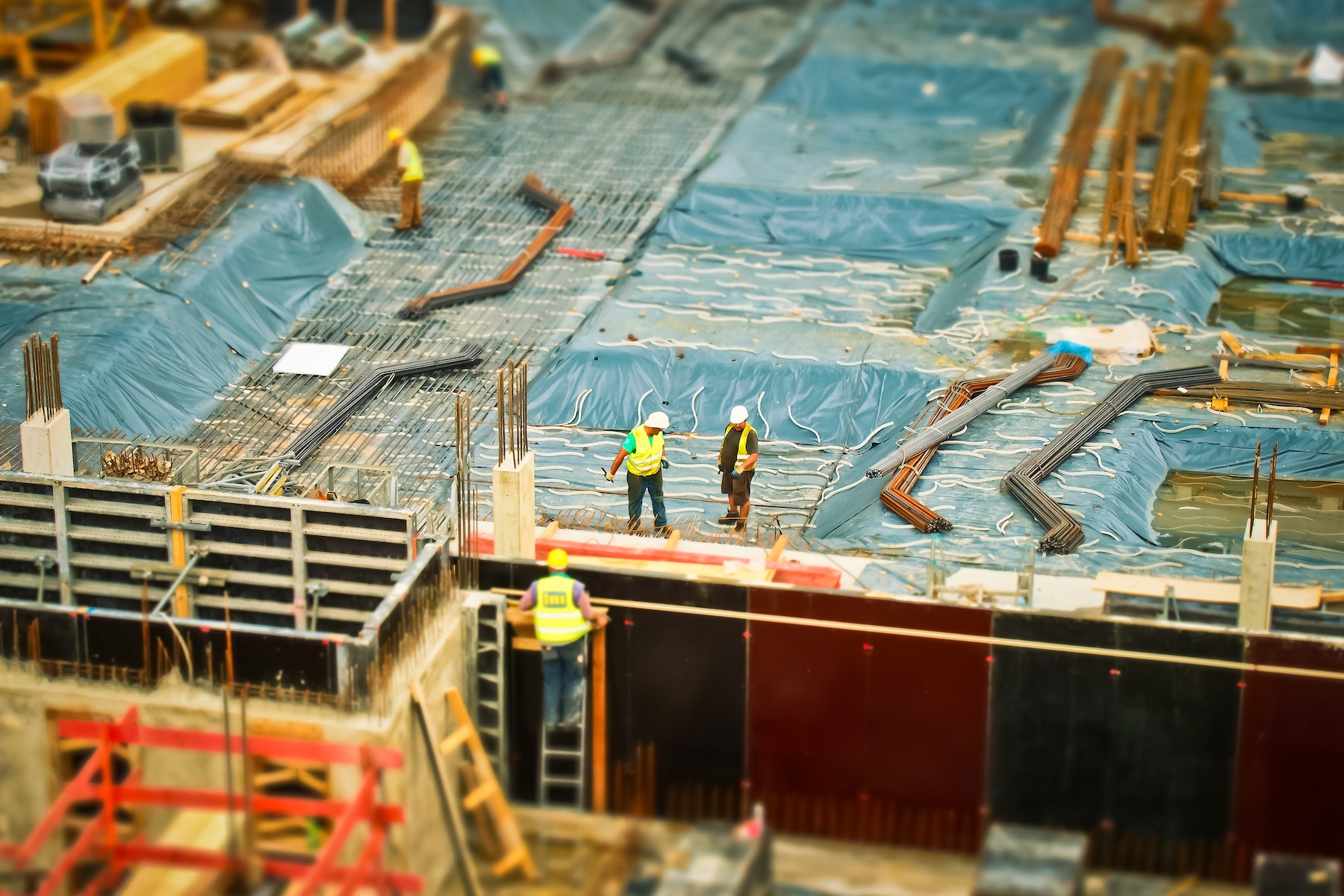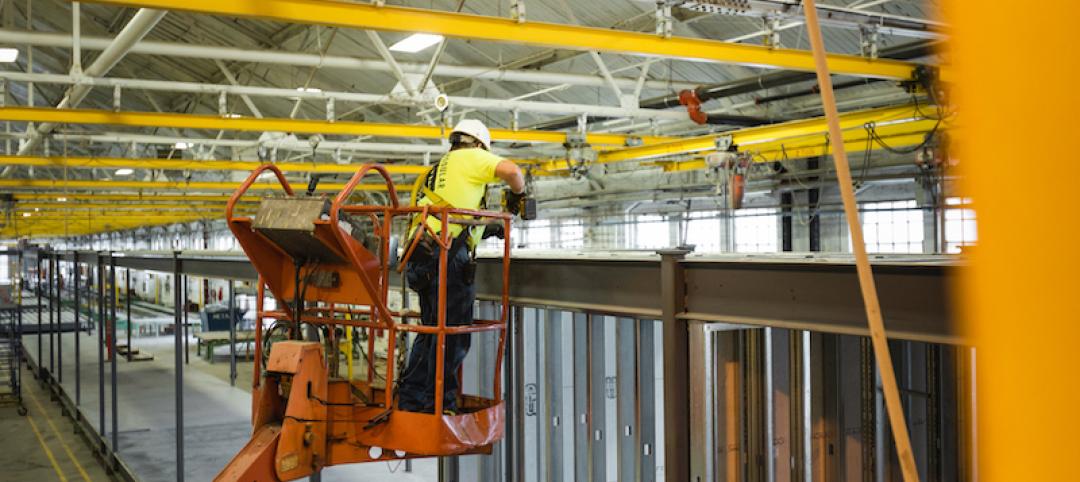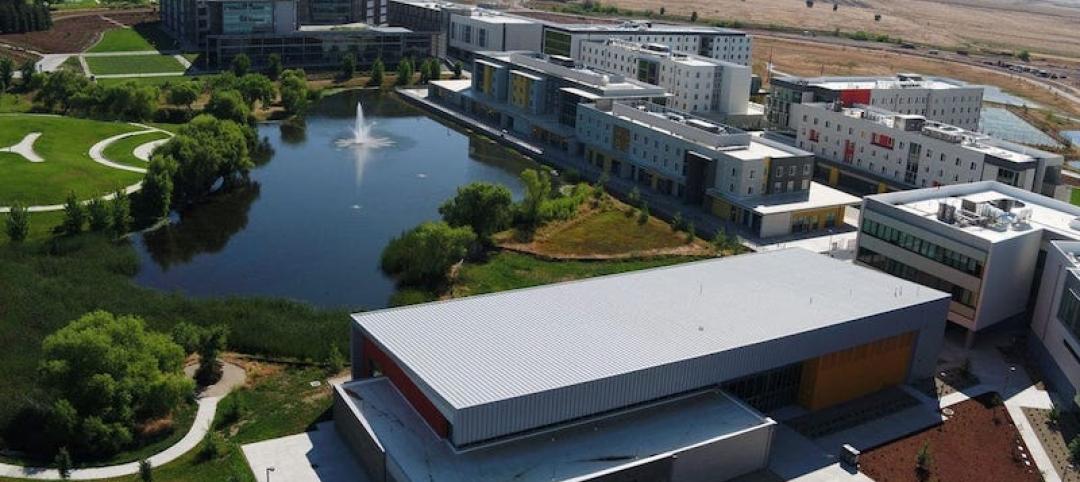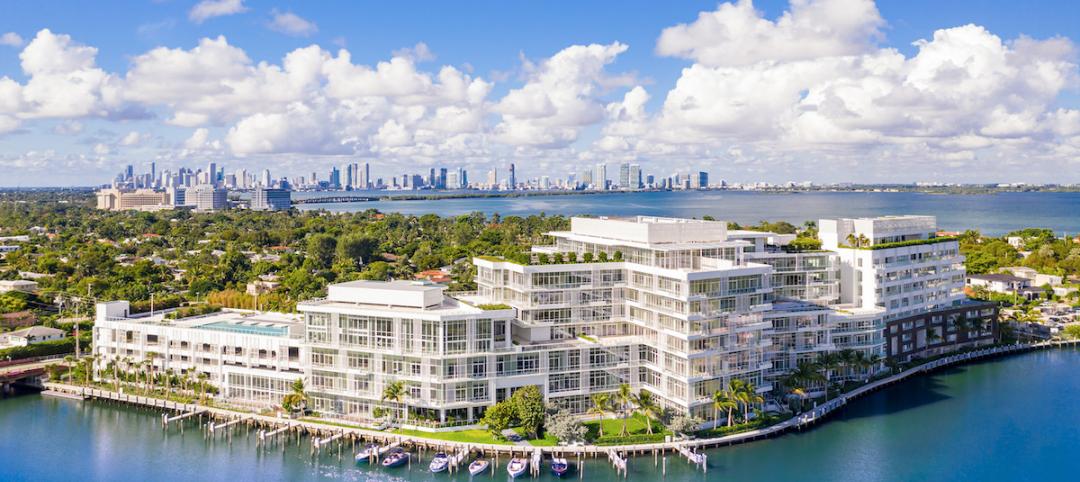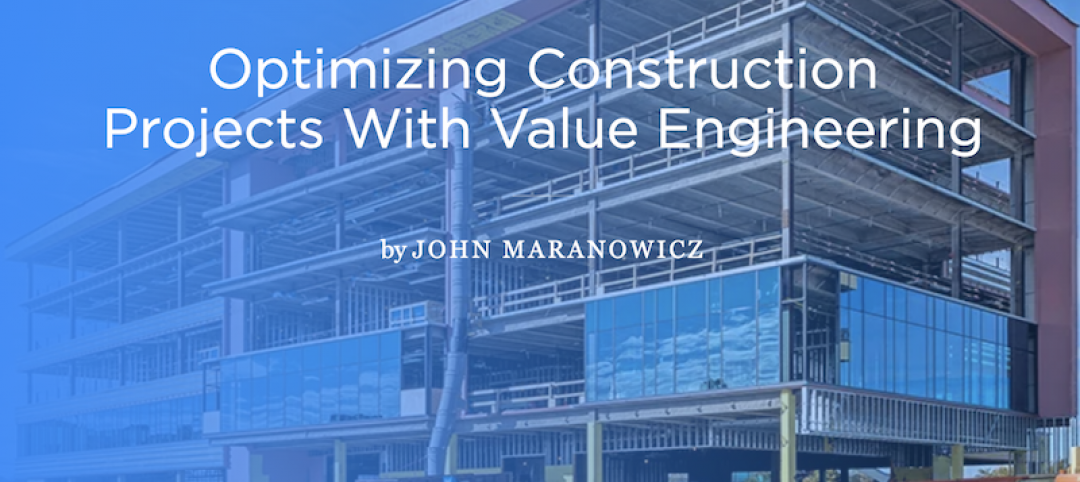Construction input prices decreased 1.8% in July compared to the previous month, according to an Associated Builders and Contractors analysis of U.S. Bureau of Labor Statistics’ Producer Price Index data released today. Nonresidential construction input prices decreased 1.8% for the month as well.
Construction input prices are up 17.4% from a year ago, while nonresidential construction input prices are 17.3% higher. Input prices were down in eight of 11 subcategories on a monthly basis. Prices in all three energy subcategories fell in July, with natural gas prices falling 27.6%, the largest decrease. Unprocessed energy materials prices were down 21.2%, while crude petroleum prices fell 19.1%.
“Today’s Producer Price Index data supplies additional evidence that inflation has peaked,” said ABC Chief Economist Anirban Basu. “A weakening global economy and ongoing supply chain adjustments have resulted in significant declines in the prices of a number of key commodities, ranging from oil to steel. While the risk of recession remains elevated, recent government reports on consumer and producer prices make it more likely that the Federal Reserve will be able to engineer a soft landing or that any recession to come could be quite mild. For contractors who have seen their profit margins diminished by elevated materials prices, a trend confirmed by ABC’s Construction Confidence Index, this is a welcome development.”
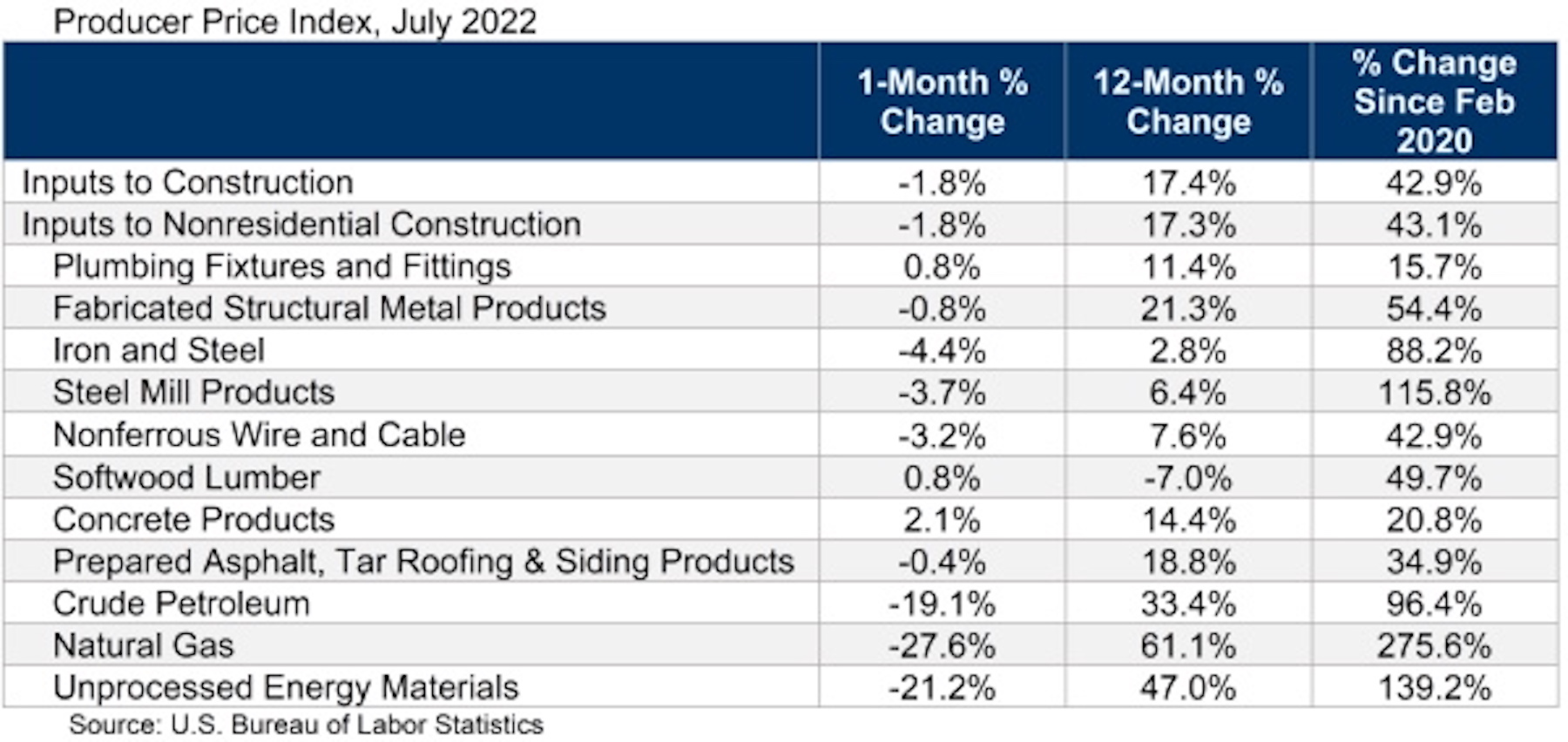
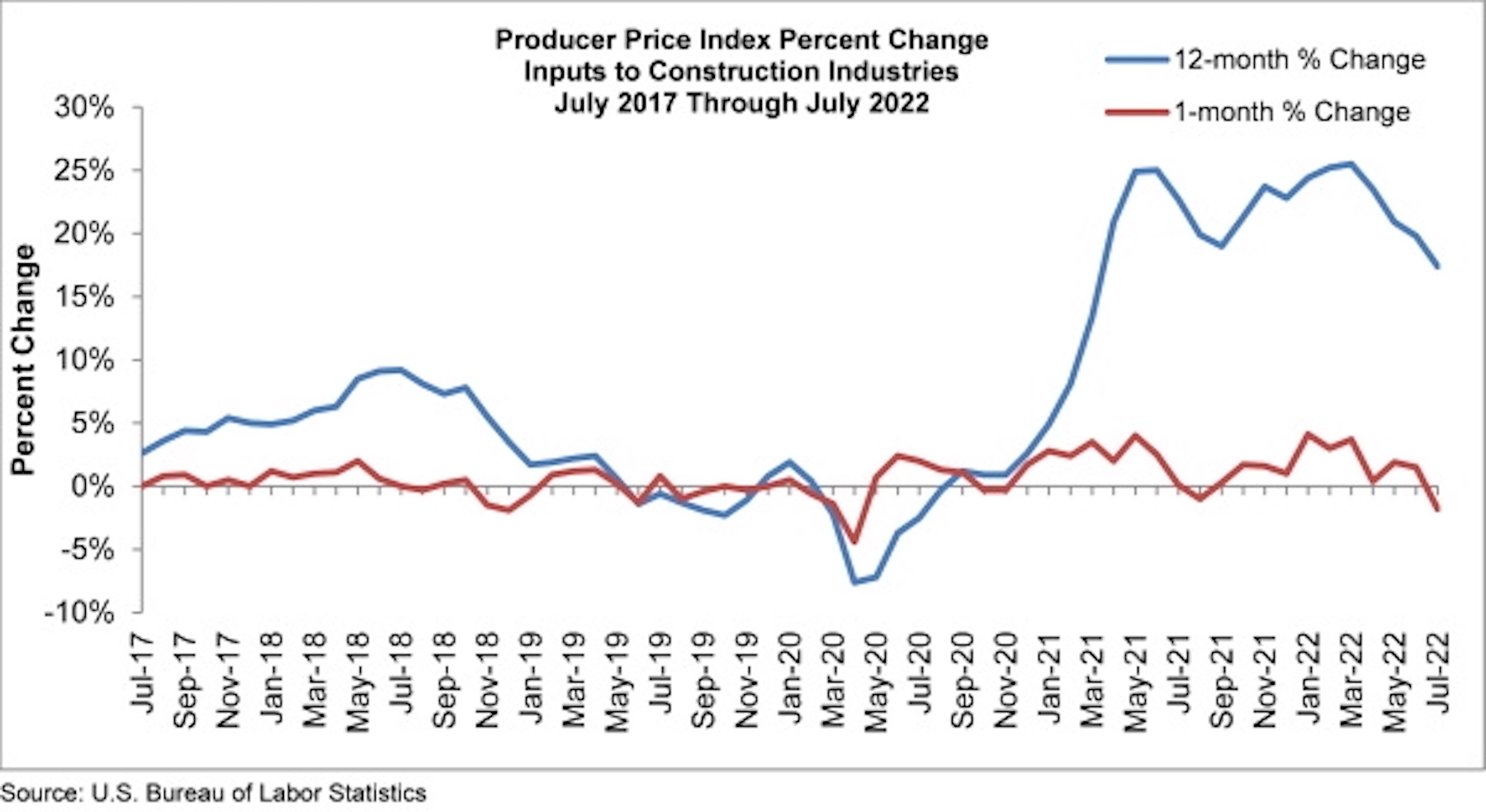
Related Stories
Modular Building | Jan 26, 2021
Offsite manufacturing startup iBUILT positions itself to reduce commercial developers’ risks
iBUILT plans to double its production capacity this year, and usher in more technology and automation to the delivery process.
Data Centers | Jan 21, 2021
The Weekly show, Jan 21, 2021: Data centers in a pandemic world, and LGBT certification for AEC firms
This week on The Weekly show, BD+C editors speak with AEC industry leaders about LGBT certification for architecture, engineering, and construction firms, and the current state of data centers in a pandemic world.
Contractors | Jan 20, 2021
Webcor, a major California builder, celebrates its 50th anniversary
Webcor celebrates its 50th anniversary as a major California builder
Multifamily Housing | Jan 20, 2021
Abandoned Miami hospital gets third life as waterfront condo development
The 1920s King Cole Hotel becomes the Ritz-Carlton Residences Miami in the largest residential adaptive reuse project in South Florida.
Market Data | Jan 19, 2021
2021 construction forecast: Nonresidential building spending will drop 5.7%, bounce back in 2022
Healthcare and public safety are the only nonresidential construction sectors that will see growth in spending in 2021, according to AIA's 2021 Consensus Construction Forecast.
Multifamily Housing | Jan 14, 2021
The Weekly show, Jan 14, 2021: Passive House innovations, and launching a design studio during the pandemic
This week on The Weekly show, BD+C editors speak with AEC industry leaders about innovations in Passive House design, and the challenges of building a design team and opening a new design studio during a pandemic.
Multifamily Housing | Jan 11, 2021
McHugh Construction completes 5th-tallest all-residential building in the U.S.
McHugh Construction Completes Two Chicago Apartment Projects for Fifield Cos. and Crescent Heights, Including NEMA Chicago –Tallest All-Residential Building in Chicago and 5th Tallest in North Americ
Multifamily Housing | Jan 8, 2021
Student housing development in the time of COVID-19
Despite the coronavirus pandemic, many college and university residences were completed in time for classes, live or virtual. Here are 14 of the best.
Contractors | Jan 7, 2021
The Weekly show, Jan 7, 2021: Preconstruction boot camp, and leadership strategies for navigating a challenging market
The January 7 episode of BD+C's The Weekly is available for viewing on demand.
Contractors | Jan 4, 2021
Optimizing construction projects with value engineering
When value engineering is referenced in our industry, our minds may immediately go to a process that reduces project cost by slashing scope or decreasing the quality of materials used. However, that is not necessarily what the definition should be.


